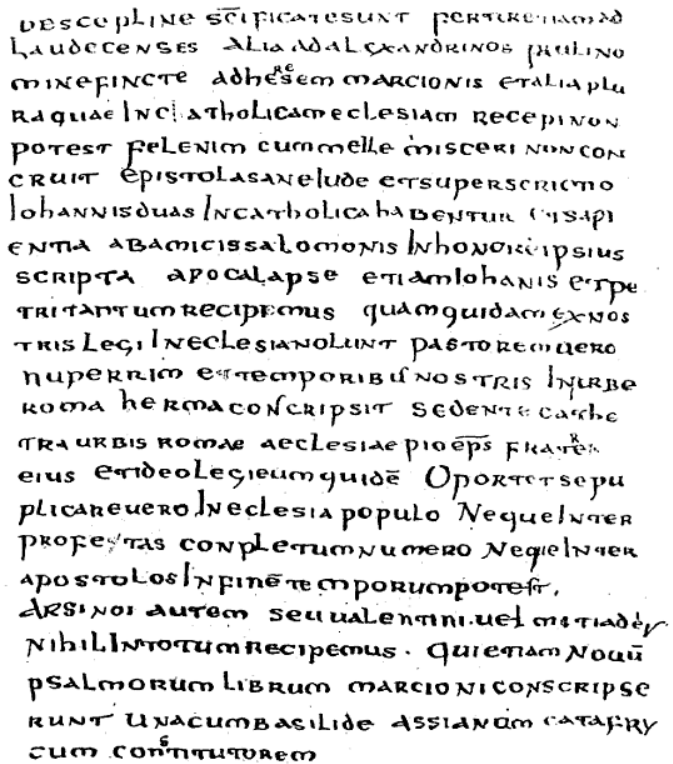why was acts 29 removed from the bible
Subscribe to the CompellingTruth.org Newsletter: Why are verses missing in some of the newer translations of the Bible?
Chanoch (Enoch) 105:14-15
The Epistles of Jesus Christ and Abgarus King of Edessa. I will say of Yahuah, He is my refuge and my fortress: my Elohiym; in him will I trust. No-stick (Gnostic) Gospels defined: sacred texts that for some reason did't 'stick' around for very long, were lost, or . Acts 28:29 is missing in the all the oldest Greek manuscripts containing this section of Acts, e.g. G. Gabriel PowellInternet Ministry Coordinator, The King James Controversy by James White.First is a statement from the Muratorian Fragment from the 5th century: 
Translations which were initially created in the 1500s (the Bishop’s Bible, the 1535 Tyndale, the 1537 Coverdale, the 1560 Geneva) or 1600s (the 1611 KJV-AV) necessarily would not have access to this text, given its discovery after they were published. Copyright Disclaimer In matter of Fact one can not find one Greek manuscript of Acts with it. "If your brother sins against you, go and tell him his fault, between you and him alone. As mentioned before, some modern translations have determined to remove the verse and add a footnote.
The manuscript itself was found interleaved in a copy of manuscripts from Sonnini’s travels in Turkey and Greece, and purchased at the sale of the library and effects of the late Right Hon.
He who dwells in the secret place of El Elyon shall abide under the shadow of El Shaddai. Textual Criticism is the field (some call it science, others say it's an art) of how this vast collection of manuscript material comes together to .
Melekiym Ri’shon (First Kings) 5:11
For he was wiser than all men; than Eythan the Ezrachiy, and Heyman, and Kalkol, and Darda, the sons of machol (round dancing): and his fame was in all nations round about.
Shemoth (Exodus) 20:11
} The divine testimony concerning man is, that he is a sinner.While the modern Druids are “pagan” worshippers, the record is not as clear concerning the ancient Druids.
Ma’asiym (Acts) 29:13
And it came to pass that certain of the Druids came unto Pa’al privately, and showed by their rites and ceremonies they were descended from the Yahudiym which escaped from bondage in the land of Mitsrayim, and the apostle believed these things, and he gave them the kiss of peace.
Cepher Publishing Group
These include John 5:4, Acts 8:37, 1 John 5:7 (partial), and in some cases, Mark 16:9-20 (though included in footnotes).
Be ready to the reward of the Kingdom, for the everlasting light shall shine upon you forevermore.
Yesha'yahu (Isaiah) 14:12
Why are the newer translations of the Bible missing verses?In the beginning was the Word, and the Word was with Elohiym, and Elohiym was the Word.
Some scholars put forth evidence that the language belonged to the Anatolian branch of Indo Europeans similar to Anatolia, Mysia, Ligurian, and Illyrian, natives of the west Balkans. In the centuries since then, archaeologists have discovered thousands of much older copies.
Chapter 29:13 describes an encounter between Pa’al and certain Druids. I don’t know much about Druids but from what I have read they seem to be a priestly class of pagan worshipers. The text says that they descended from the Yahudiym and that Pa’al gave them the kiss of peace. Can you explain how this encounter is consistent with Pa’al’s ministry as described in the previous chapters in the book of Acts?